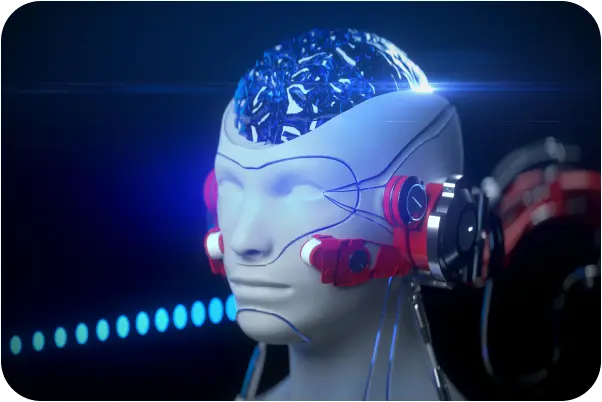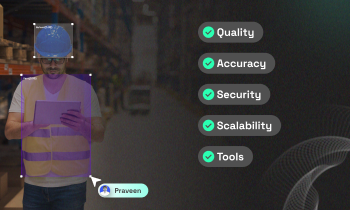Are voice cloning datasets used to create deepfakes?
Voice Cloning
Security
Deepfake
Voice cloning datasets can indeed be misused to create deepfakes, raising significant ethical considerations. While both technologies share a common foundation in artificial intelligence, their intended applications and potential impacts diverge considerably. Let's explore these aspects further, focusing on the ethical use of voice cloning and the risks associated with deepfakes.
Defining Voice Cloning vs. Deepfake Technology
Voice cloning involves replicating a person's voice using machine learning algorithms based on audio recordings. This process allows for the creation of synthetic speech that closely mimics the original speaker's tone and style. These datasets often include high-quality recordings capturing a range of emotions, accents, and speaking styles to ensure the generated voice is versatile and realistic.
Conversely, deepfakes involve the synthetic manipulation of a person's likeness or voice to create misleading content. This can involve video manipulation or altering audio to make someone appear to say things they never did. The ethical concerns surrounding deepfakes are significant, especially in areas like misinformation and identity theft.
Ethical Concerns in Voice Cloning and Deepfake Technologies
While voice cloning datasets can technically be used to create deepfakes, their ethical application is paramount. Projects utilizing voice cloning typically focus on beneficial applications such as enhancing virtual assistants, improving accessibility tools, and creating engaging content. These initiatives prioritize consent and transparency, often requiring explicit permission from voice contributors.
However, the capabilities that enable realistic voice replication also pose risks if misused for deepfake production. FutureBeeAI, as a trusted data partner, emphasizes ethical data practices. We ensure that all voice data is sourced
with full consent and adhere to robust compliance frameworks to prevent misuse.
Voice Cloning Process: From Data Collection to Quality Assurance
The voice cloning process involves several critical steps:
- Data Collection: We gather high-quality audio recordings from voice contributors in professional studio settings. These recordings cover a wide range of phonetic and emotional expressions to create a comprehensive voice model.
- Data Annotation and Preparation: The audio is annotated with metadata such as speaker demographics and emotional tones, essential for training models that require diverse inputs.
- Model Training: Machine learning models are trained using these prepared datasets, learning the nuances of the speaker's voice, including pitch and cadence.
- Evaluation and Quality Assurance: Post-training, models undergo rigorous evaluation to ensure the synthesized voice meets quality standards and accurately reflects the original speaker.
Ethical Voice Technology: Balancing Innovation and Misuse
Voice cloning technology holds immense potential for advancing user interaction with machines, provided ethical considerations remain a priority. In sectors like education and healthcare, it facilitates more natural and personalized communication, enhancing user engagement and accessibility. For instance, personalized voice assistants can significantly improve user experiences by making technology feel more relatable and human.
However, safeguarding against misuse is crucial. FutureBeeAI's commitment to ethical standards involves implementing strict consent protocols, conducting regular audits, and adhering to legal frameworks governing ethical deployment. This ensures voice cloning technology is used responsibly, minimizing the risk of it being co-opted for deepfakes.
Common Pitfalls and Best Practices
Teams working with voice cloning datasets may encounter challenges such as insufficient dataset diversity or overlooking ongoing quality checks. Ensuring diversity in gender, accent, and emotional tones is essential to create effective voice models. Additionally, staying informed about evolving legal frameworks and aligning practices with ethical standards can prevent potential legal issues.
Navigating the Future of Voice Cloning
The future of voice cloning lies in harnessing its benefits while mitigating deepfake risks. By fostering a culture of responsibility and ethical awareness, organizations can develop voice technologies that enrich interactions without compromising integrity. FutureBeeAI is dedicated to being a reliable partner in this journey, offering scalable, high-quality datasets that adhere to the highest ethical standards.
Smart FAQs
Q. Can voice cloning technology be used ethically?
A. Yes, voice cloning technology can be ethically implemented by obtaining clear consent and following ethical guidelines. It is beneficial in applications like personalized assistants and accessibility tools.
Q. What measures can be taken to prevent the misuse of voice cloning datasets?
A. Preventing misuse involves establishing strict consent protocols, conducting regular audits of dataset usage, and implementing robust legal frameworks to govern ethical deployment. FutureBeeAI prioritizes these measures, ensuring ethical use of voice cloning technologies.
What Else Do People Ask?
Related AI Articles
Browse Matching Datasets
Acquiring high-quality AI datasets has never been easier!!!
Get in touch with our AI data expert now!








